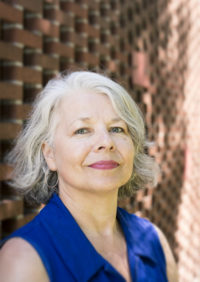The 2020 Marston LaFrance (Virtual) Lecture
The Hunter, the Crown and the Cameras
by Dr. Carol Payne (Art History)
Video
This lecture occurred live online on Thursday, May 21, 2020

In a Faculty of Arts and Social Sciences’ first, 2019-2020 Marston LaFrance Research Fellowship Winner, Professor Carol Payne (Art History) delivered the annual Marston LaFrance Lecture in a virtual setting.
For the online 2020 Marston LaFrance lecture, Prof. Payne presented her paper The Hunter, the Crown and the Cameras which traces the entangled histories of Inuit and settlers in the Qikiqtaaluk (Baffin) region during the 1950s through photographs, films, and other visual technologies.
The 1950s marked a period of dramatic change in the Qikiqtaaluk region. Transformations included accelerated efforts to assimilate Inuit into southern society, heightened economic interest in extracting resources from Arctic regions, and increased military activity in the Arctic in response to Cold War tensions. Inuit of the region experienced these changes directly through the establishment of settled communities, the coerced relocation of several families from Hudson’s Bay and northern Baffin Island to the High Arctic, and the imposition of mandatory residential or federal day schools for Inuit children. The camera and other visualizing devices were at once witnesses to these devastating events; technologies enlisted to aid the forced assimilation of Inuit as well as claims of Canadian national sovereignty over the Arctic; and tools through which Inuit challenged these forces.
This paper, written from the perspective of a settler, examines how southern assertions of authority over the Arctic and over Inuit lives during the 1950s were both played out and resisted through fields of visualization. Prof. Payne’s specific case study revolves around Joseph Idlout (??-1968), the most extensively photographed and filmed Inuk of his time. Idlout’s image often appeared as a primitivist emblem of Canadian sovereignty even as he suffered from the effects of heightened southern intervention. Yet, Idlout was also a photographer himself. By staging performances of the settler gaze from the perspective of Indigenous sitters, Idlout’s photographs assert Inuit agency and resistance in a time of disruption.
![On the sea ice in an inlet between Curry Island and Baffin Island, off Cape Hatt. Idlouk [Idlout] is taking a picture of Kadluk, who is cutting open a narwhal that was shot and harpooned while swimming in wide cracks in the melting sea ice. Idlouk is using a still camera that Douglas Wilkinson gave him on the set of the Land of the Long Day. July 25, 1953.” Photographer: Doug Wilkinson. Photo credit: Nunavut Archives, N79-051-0124, Wilkinson fonds, July 25, 1953.](https://carleton.ca/fass/wp-content/uploads/sites/46/Marston-LaFrance-1024x683.jpg)
The Marston LaFrance Research Fellowship
Each year, the Faculty of Arts and Social Sciences awards the Marston LaFrance Research Fellowship to one of its outstanding faculty members, in order to facilitate the completion of a major research project that requires significant release time. Once the year has completed, the Fellowship winner delivers a lecture on the research they were able to accomplish during their time as the Marston LaFrance Fellow.
The Fellowship was established in 1979 by the Faculty of Arts and Social Sciences in memory of Marston LaFrance, former Professor of English and Dean of Arts at Carleton University. Each year, the recipient presents a seminar or public lecture on some aspect of the research conducted while on the LaFrance Fellowship.